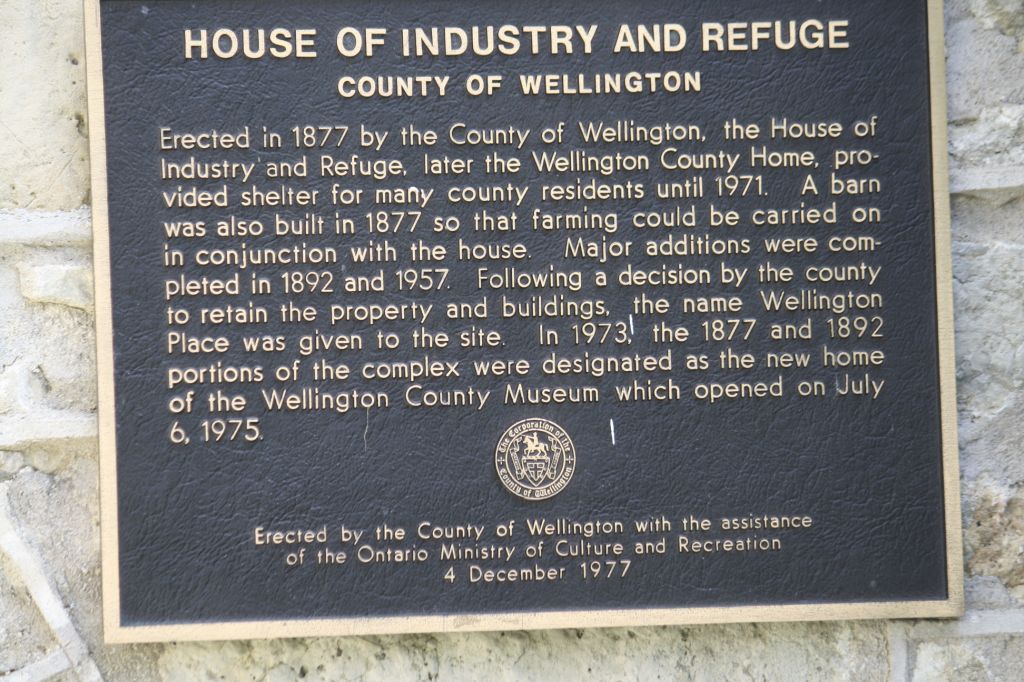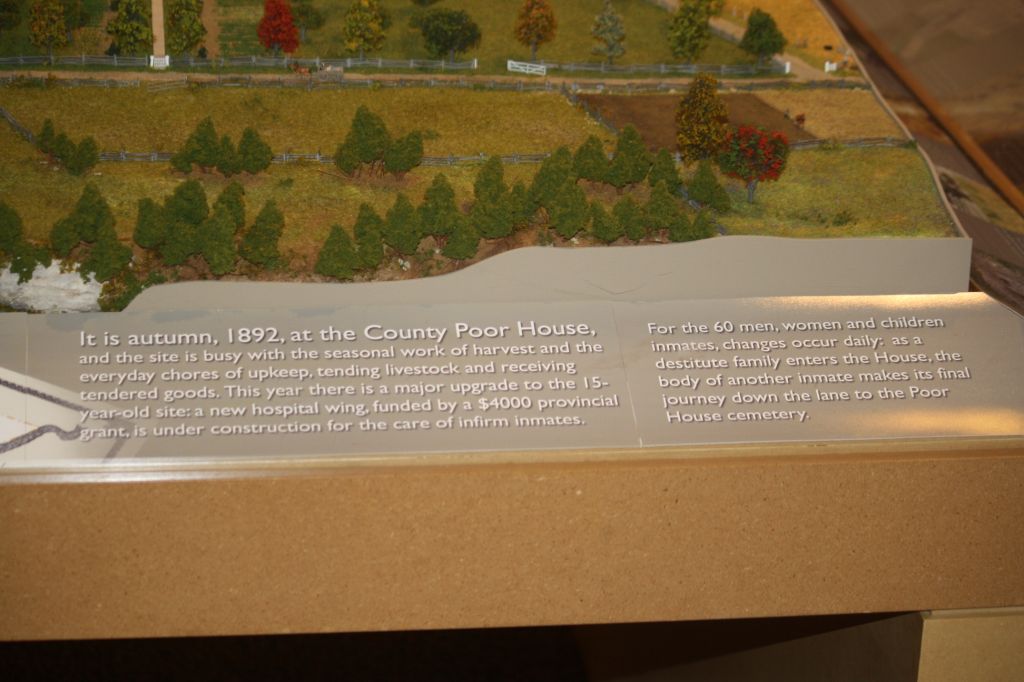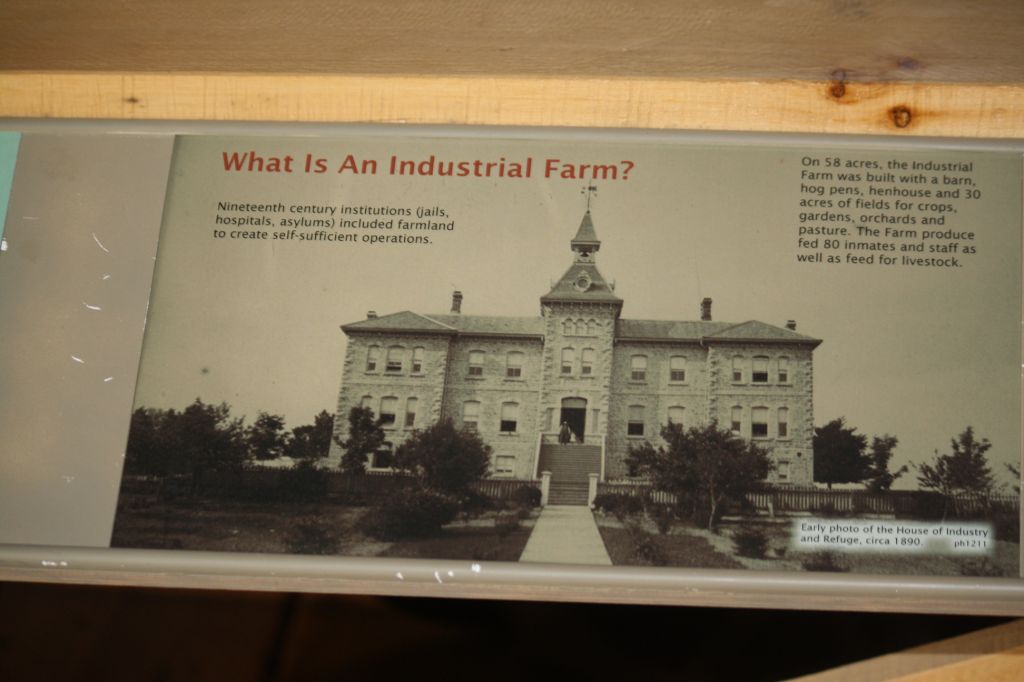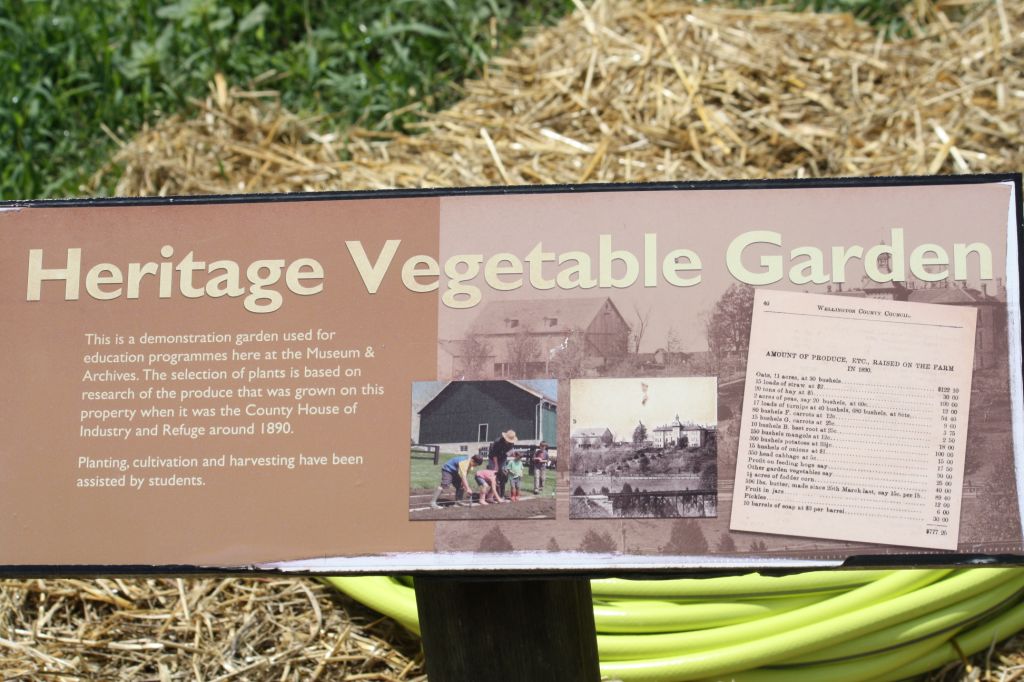I spent several days last week visiting family in South-western Ontario; while there I had the opportunity to tour the Wellington County Museum and Archives, which is housed in a gorgeous19th century building in the rolling countryside between Elora and Fergus, not far from Guelph. The Museum had a former life as the Wellington County House of Industry and Refuge (or Poorhouse). It was built in 1876-1877 as the shelter of last resort for the homeless and destitute in Wellington County. Its original inhabitants traded their domestic or agricultural labour for spartan living accommodations. In later years it became a home for the elderly and infirm until it was closed in 1971 and subsequently converted to a museum. Well designed plaques show attitudes of the times as the residents were called inmates.




Of particular interest to me was that throughout its history, the Wellington County House of Industry and Refuge operated as a working farm. This was common practice in the nineteenth century when institutions such as jails, asylums and hospitals were expected to have self-sufficient operations.



Staff at the museum are restoring the barn which includes a large area for the storage of root crops and have created a small vegetable garden showing some of the vegetables grown historically.



In hindsight it is pretty obvious that operations of the poorhouses was far from perfect but it can be argued that the poorhouse system was the foundation for today’s government-funded social assistance programs.
As for the role of gardens and farms in such institutions, a quick consult with Professor Google shows that there is much support for reinstituting Canada’s prison farms and there are several pilot projects establishing gardens at hospitals. In modern times however it seems that the primary reasons for such programs relates more to the therapeutic effects of connecting with the natural world and growing things, rather than a direct contribution to the bottom line!
Augusta Park – Five Wednesdays in July!
Augusta Park is the place to be every Wednesday evening in July! Music and food is featured every Wednesday from 6pm to 8pm – it is still called Five Wednesdays even though there are only four this year – it would be a shame to change such a great logo! This year features a stellar line-up of generous musicians that are all playing for free in this wonderful community park for our pleasure this July. The third show takes place this week on July 20th with an amazing group of musicians that includes Jimmy Tritone and Redneck Limousine.
This week will also feature a BBQ provided by the Civitan Club.
There are no stupid questions!
Master Gardeners will be in the garden on Wednesday to show you around and answer your questions. As well hands-on educational opportunities are available weekly throughout the summer. ‘Weed and learn’ sessions take place every Thursday through the growing season. Join us at Augusta Park Community Garden from 9 to 11 in the morning or from 4 to 8 in the evening every Thursday for collaborative community gardening sessions as we share our knowledge, mentor new gardeners, weed our garden and berm and share fellowship. Master Gardeners will be there to help with your gardening concerns for both the Augusta gardeners as well as for any other gardeners in the community.
Starting this evening gardening advice will also be available Tuesday evenings from 6:30 to 7:30 at the garden in front of the Food Bank at 5 Allan Street in Carleton Place.
“The Great Veggie Grow-Off”
Please remember to drop off surplus garden produce at the Lanark County Food Bank. All you have to do is bring your armfuls of produce to the Food Bank at 5 Allan Street in Carleton Place and make sure that it is weighed and credited to Mississippi Mills.
The Food Bank is open:
Mon:
5:00 pm – 7:00 pm
Tue:
9:00 am – 1:00 pm
Wed:
5:00 pm – 7:00 pm
Thu-Fri:
9:00 am – 12:00 pm
Try to drop it off first thing in the morning if possible.
The Great Veggie Grow-off Community Challenge, now in its third year, has expanded this year to include gardeners in communities across Lanark supporting all four of the food banks in the County. It started in the municipalities of Mississippi Mills, Carleton Place and Beckwith, the towns supported by the Hunger Stop, and the results were amazing. We saw an increase in people in these towns growing food and sharing it with others. Over two tons of healthy local produce was donated to the food bank last year and the feedback from recipients was extremely positive.
This year we are challenging all Lanark communities plus Smiths Falls to grow and donate to their local food bank. Presently all four food banks (Carleton Place, Lanark Highlands, Perth and Smiths Falls) take donations of freshly grown produce. They have been asked to weigh and record the community of origin of locally grown donations of food from May 1st until the final weigh-in at Thanksgiving. Bragging rights will be given to the community that donates the greatest amount of locally grown food as well as to the community with the highest amount of freshly grown food donated per person with the big winner always being our community food banks.


